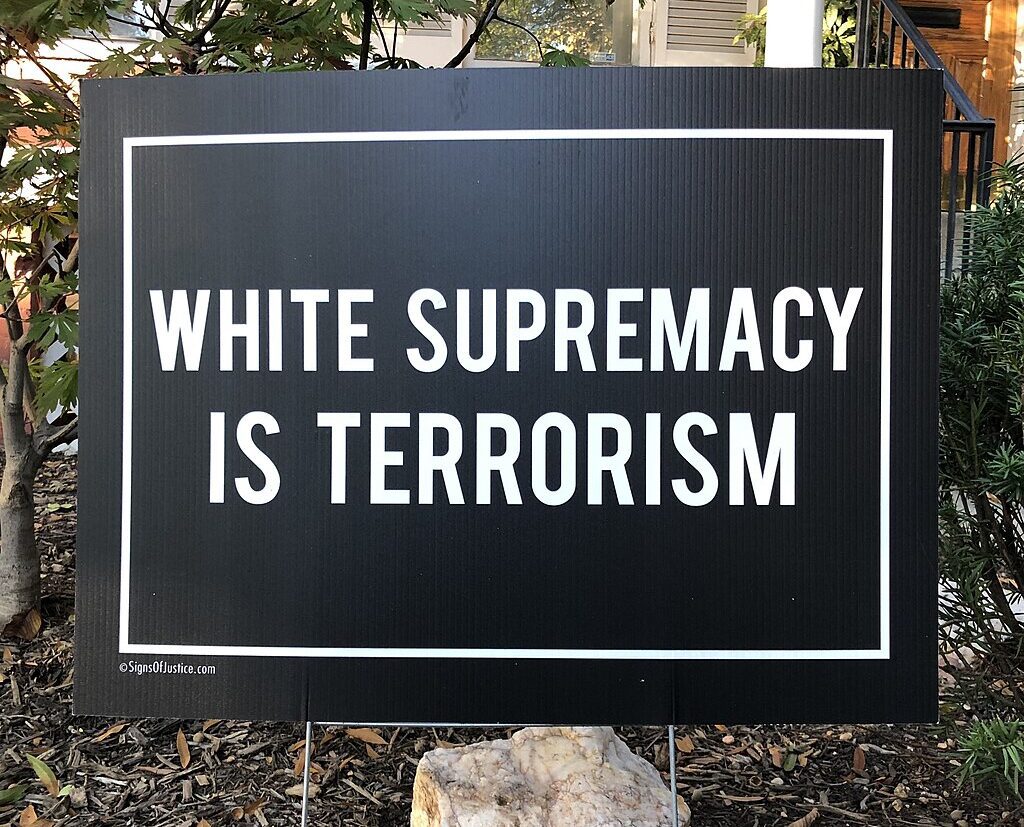Written by Robert P. Jones and reviewed by Wendell Griffen
The latest book by Robert P. Jones, president of the Public Religion Research Institute (PRRI), is rightly titled The Hidden Roots of White Supremacy and The Path to a Shared American Future. In this book, Jones exposes the religious role in creating and spreading white supremacy by European – meaning white – Christians by the Doctrine of Discovery, a set of papal bulls issued in 1493 that established the moral, intellectual, political and legal foundation for European colonization efforts in the United States.
American history teachers did not teach that papal edicts declared non-Christian societies morally, intellectually and politically inferior a year after Columbus purportedly “discovered” what Europeans called the “New World.” The Doctrine of Discovery claims that European civilization and western Christianity are superior to all other cultures, races and religions.
Jones exposes how that claim was the foundation for domination, colonial conquest, enslavement and future oppression of indigenous people in North America, Africa and Asia because, in his words, the Doctrine of Discovery “merged the interests of European imperialism, including the African slave trade, with Christian missionary zeal.”
In addition to exposing what American history teachers did not teach and what American students did not learn, The Hidden Roots of White Supremacy documents how the Doctrine of Discovery and its white supremacist precepts appear in the 1776 Declaration of Independence and the 1789 Constitution of the United States. Jones teaches us how the Doctrine of Discovery influenced Thomas Jefferson, and how it was formally incorporated into U.S. law by the U.S. Supreme Court’s unanimous 1823 decision in Johnson v. McIntosh. In that case, Chief Justice John Marshall wrote that “discovery gave [the United States] an exclusive right to extinguish the Indian title of occupancy, either by purchase or conquest.”
Robert Jones does much more than educate readers about history we were not taught. The Hidden Roots of White Supremacy is forthright about the enduring impact of racial injustice Americans willfully refuse to acknowledge. Jones details how the Doctrine of Discovery impacted life in his native Mississippi “four hundred years before Emmett Till” was murdered in 1955 in Money, Mississippi. We learn how the Doctrine of Discovery factored in the lynching of black people in Duluth, Minnesota, in 1920. Read The Hidden Roots of White Supremacy and learn, perhaps for the first time, how the Doctrine of Discovery operated in the history of white settler colonization of Oklahoma and lurked in the shadows of the 1920 massacre and terrorism of Black people in Tulsa. And readers will learn how public officials who were also leading religious figures in their respective locations participated in and condoned, tacitly, and openly, racial injustice in those locations.
Yet The Hidden Roots of White Supremacy is hopeful without being sentimental, that Americans might work together to re-imagine and live out a new future despite our history. In doing so, Robert Jones admits being “stunned by the sheer amount of energy and capital required to maintain this worldview [of white supremacy] in the presence of so much counterevidence… [and being] transfixed by the command it has had on American psyches from the founding to the present.”
That intellectual and emotional honesty is what makes The Hidden Roots of White Supremacy compelling. That intellectual, emotional, and social honesty by Jones, a White Baptist ethicist and researcher of U.S. religious values, is revealing, refreshing and the best reason to read The Hidden Roots of White Supremacy. Perhaps readers will be inspired to summon the courage to not merely reflect on the book, but also teach it, then with Jones, join in walking the path to a shared American future.
— Wendell Griffen is retired district court judge in Little Rock, AR serves on the board of Christian Ethics Today, and is a well-known author and speaker.
